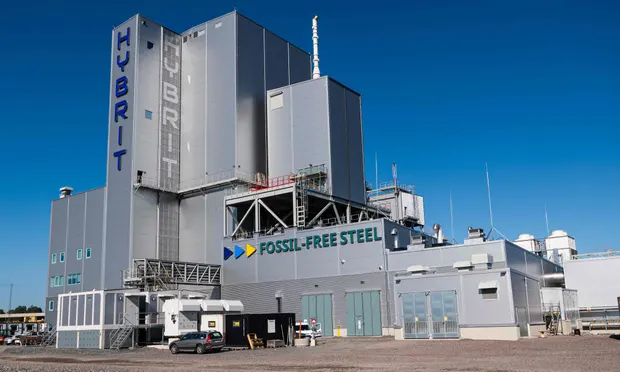The EU has become the first big economy to legislate for a “green tariff” on imports, to be levied on goods that are produced with high carbon dioxide emissions.
Announced as part of the EU green deal, a big push to meet the EU’s stringent climate targets, the move could be the first salvo in a global carbon trade war – or the first step towards an equitable global effort to cut greenhouse gas emissions in line with urgent scientific advice.
The US and the UK are considering how to respond, but the countries most affected by Europe’s moves are likely to be those with high-carbon export industries such as China, Turkey, India and potentially Australia.
According to reports, the carbon border adjustment mechanism (CBAM) means that countries which fail to green their industries will soon face a new threat, an effective carbon tax that will penalise those hoping to profit from high-carbon activities and force them to clean up.
It is expected that the system will be applied at first to iron and steel, cement, fertilisers, aluminium, electricity, hydrogen and some chemicals.
In his reaction, Jozef Síkela, minister of industry and trade of the Czech Republic, who led the negotiations in the EU parliament, said that the carbon border adjustment mechanism is a key part of our climate action.
“This mechanism promotes the import of goods by non-EU businesses into the EU which fulfil the high climate standards applicable in the 27 EU member states,”he said. “This will ensure a balanced treatment of such imports and is designed to encourage our partners in the world to join the EU’s climate efforts.”
Read also: Expert faults climate change for current floods In Kzn, Gauteng
If all goes according to plan, CBAMs will come into force on a trial basis from next October. But the agreement is still provisional and details remain to be ironed out by member states and other institutions.
At first, there will be no financial or other penalties attached to the EU’s CBAM – companies will only be required to report on the emissions associated with the production of the goods they wish to sell.
Also reacting, Frans Timmermans, vice-president of the European Commission, said, “We’re going to ask a tremendous transformation from many parts of our industry. If other [countries] don’t do that – if they don’t comply with what they engaged to do under the Paris agreement – the risk of carbon leakage is huge. You will see European industry move elsewhere, to places where they don’t have to comply with strict norms, to emit CO2 there. That would render our climate action useless.”
Pascal Canfin, chair of the EU parliament’s environment committee, hailed the move, stating that the agreement is a world first. He said that they are going to ensure fair treatment between companies, which pay a carbon price in Europe and their foreign competitors, which do not.
“This is a major step that will allow us to do more for the climate while protecting our companies and our jobs,”he said.
Story was adapted from the Guardian.
